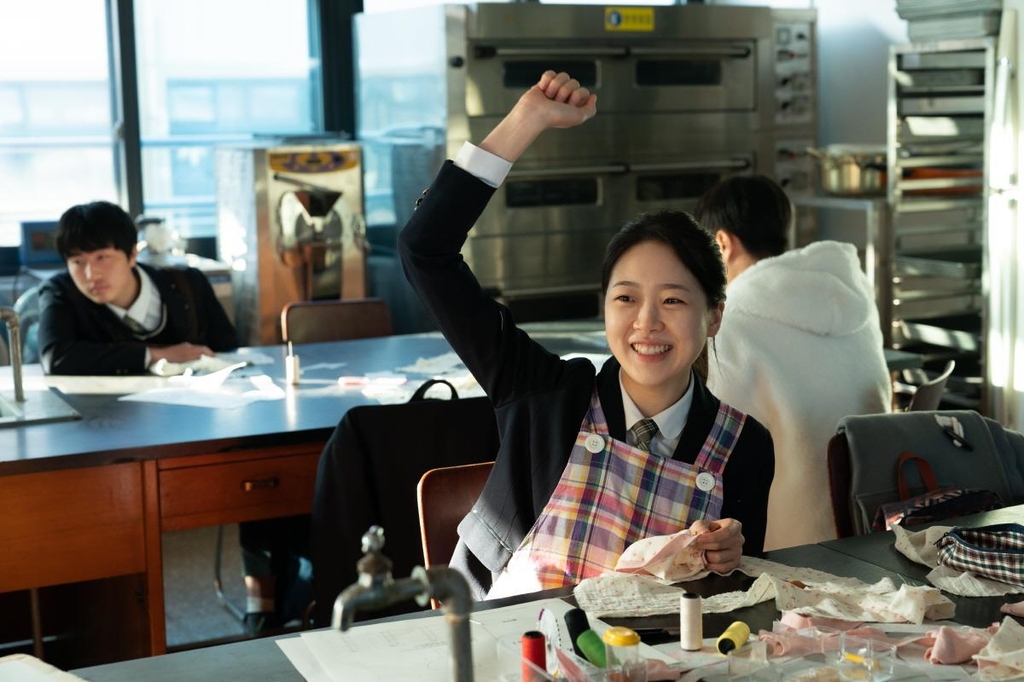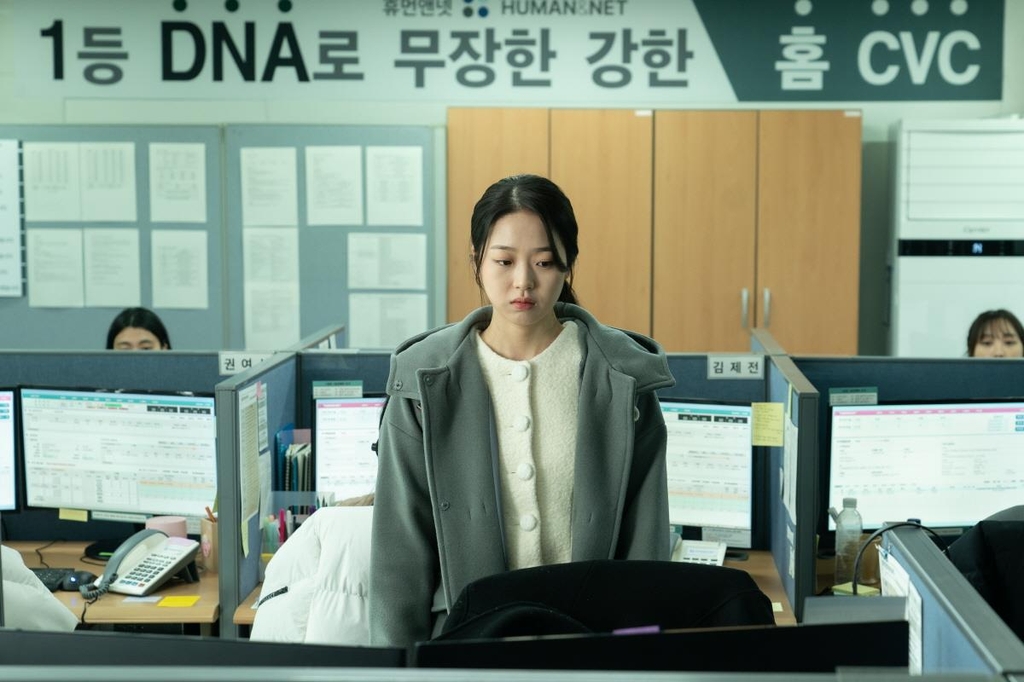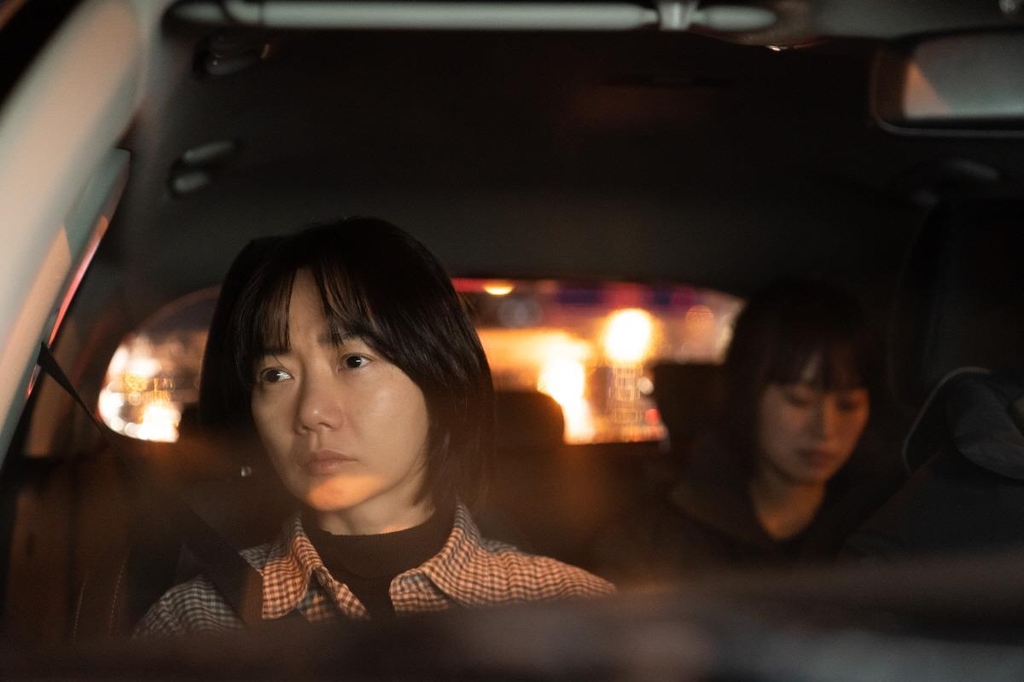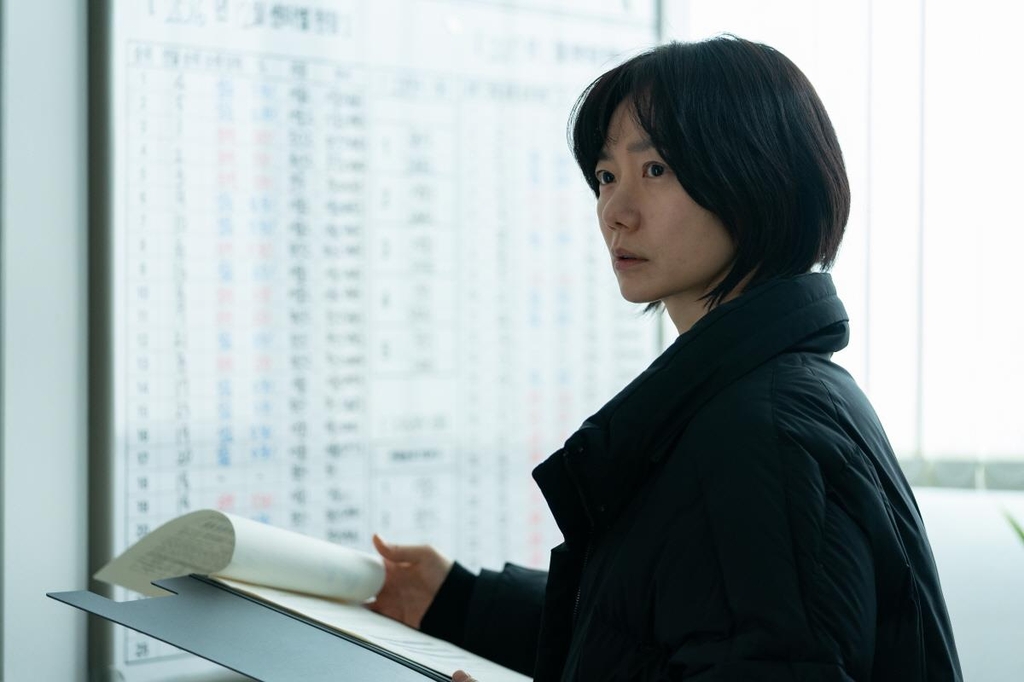얼마나 죽어 나가야 세상이 바뀌겠니…영화 '다음 소희'
송고시간2023-01-31
양정우기자
'특성화고 현장 실습생' 사망사건 모티브…정주리 감독 9년 만의 신작
배두나 섬세한 감정표현·김시은 신예답지 않은 연기력 주목
 영화 '다음 소희'
영화 '다음 소희'[트윈플러스파트너스㈜ 제공. 재배포 및 DB금지]
(서울=연합뉴스) 양정우 기자 = 소희는 친구들과 연습실에서 녹초가 될 때까지 춤추는 것을 좋아하는 특성화고 학생이다.
언제나 당당하고 할 말은 하는 스타일이지만 졸업을 앞둔 소희도 취업이라는 관문 앞에서 작아질 수밖에 없다.
담임 선생은 어렵게 구한 대기업 자리라며 소희를 콜센터 현장 실습으로 떼밀고, 그렇게 소희의 첫 사회생활이 시작된다.
소희의 일은 온종일 다닥다닥 붙은 책상 앞에 앉아 헤드셋을 착용한 채 고객 전화를 응대하는 것이다. 짜증스러운 요구, 욕설, 트집은 좀체 참기 어렵다.
업무가 서투를 수밖에 없는 소희는 얼마 못 가 고객 응대 횟수인 '콜수'조차 채우지 못하는 저성과자로 낙인이 찍힌다.
그는 고된 상황을 벗어나고자 근무시간을 넘겨 일에 몰두하지만, 돌아오는 건 최저임금에도 미치는 못하는 차별적인 임금뿐이다.
그가 부당한 대우 앞에 목소리를 높여도 달라지는 것은 없고, 소희는 안팎으로 점점 고립돼 간다. 더는 회사를 가기가 싫지만, 현장실습이라는 이름의 '어둠의 노동'에서 벗어날 길은 없다.
 영화 '다음 소희'
영화 '다음 소희'[트윈플러스파트너스㈜ 제공. 재배포 및 DB금지]
영화 '다음 소희'는 실제 사건을 모티브로 만든 영화다.
2016년 전주에서는 취업 연계형 현장실습을 나간 특성화고 여학생이 극단적인 선택을 한 일이 있었다. 유족과 노동계를 중심으로 죽음을 촉발한 배경에 부당노동행위가 있다는 목소리가 커졌고, 현장실습 문제가 사회적 관심사로 떠올랐다.
그럼에도 현장 실습 과정에서 법규와 절차를 지키지 않는 일은 계속됐다. 졸업을 앞둔 학생들이 파견 간 현장에서 목숨을 잃는 일도 반복됐다.
영화는 이렇게 아무리 부당함을 외쳐도 달라지지 않은 현실에 주목한다. 오랫동안 문제를 방관하고, 서로에게 책임을 떠넘겨온 우리 사회 구성원들에게 '다음 소희는 누구인가'라는 질문을 던진다.
정주리 감독은 31일 서울 CGV용산아이파크몰에서 열린 기자간담회에서 "소희만의 이야기, 하나의 사건만이 아닌 그 이전, 어쩌면 그다음이 영원히 반복돼야 하는 것은 아닌지 묻고 싶었다"고 작품 제작 의도를 설명했다.
이어 "촬영을 준비할 때 여수에서 따개비를 따다가 학생이 죽었는데 그 학생 또한 현장 실습 나간 학생이었다"며 "뉴스가 나오고 사회적 이슈가 되고, 교육부 장관, 대통령이 사과했으나 다시 잊혀지는 과정을 보는 게 참담했다"고 안타까워했다.
 영화 '다음 소희'
영화 '다음 소희'작품은 2014년 '도희야'로 데뷔한 정 감독이 9년 만에 내놓은 신작이다. '도희야'에서 함께한 배우 배두나가 사건의 진실을 캐는 형사 유진 역을 맡았다.
배두나는 '학생 하나 죽은 게 무슨 문제냐'는 세상의 외면에 분노하며 진실을 추적해가는 유진 역으로 특유의 섬세한 연기를 선사한다.
배두나는 "시나리오를 처음 받았을 때 소재와 주제 의식, 모든 것에 다시 한번 반했던 거 같다"며 "확실하게 어려운 영화였지만 섬세하게 연기하지 않으면, 관객이 느낄만한 날 것의 느낌이 아니면 지루해질 것이라는 생각을 했다"고 돌아봤다.
소희 역은 신예 김시은이 연기했다. 그의 장편 데뷔작이다. 신인 배우로는 여겨지지 않을 정도로 감정 표현이 안정적이다.
김시은은 "감독님과 대화 몇 마디를 나누고서 그날 '소희'가 됐다"면서 "제가 정주리 감독님에, 배두나 선배님하고 같이 작품을 처음 하게 되다니, 당시 책임감과 부담감이 함께 들었다"고 회고했다.
'다음 소희'는 해외 영화제에서 먼저 주목받았다. 제75회 칸영화제 비평가주간의 폐막작으로 이름을 알렸다. 칸영화제는 '다음 소희'를 두고 "충격적이면서도 눈을 뗄 수 없는 작품"이라고 평했다.
제26회 판타지아국제영화제에서도 폐막작으로 소개돼 감독상과 관객상(은상)을 받았다. 이 밖에도 제12회 암스테르담영화제, 제27회 부산국제영화제 등 10여 개 국제영화제에 초청돼 호평을 받았다.
 영화 '다음 소희'
영화 '다음 소희'[트윈플러스파트너스㈜ 제공. 재배포 및 DB금지]
eddie@yna.co
outh Korea
Review: “Next Sohee” Captures the Emotional and Systemic Exploitation of South Korea’s Youth
Director July Jung returns with "Next Sohee," which offers a two-part story on the exploitation and abandonment of young people in South Korea.
By Jianne Soriano, 31 Oct 22 23:59 GMT

After eight years, South Korean director July Jung makes her much-awaited comeback with Next Sohee. Much like Jung’s debut feature A Girl at My Door, Next Sohee stars veteran actress Bae Doona, and received critical acclaim upon its debut—including a seven-minute standing ovation at the 2022 Cannes Film Festival.
Set in 2016 and inspired by a real-life case, the film follows high school student So-hee (Kim Si-eun), who starts an externship at a call center despite studying pet care. Amidst struggles with job tasks and imposter syndrome, So-hee tries maintaining a hopeful attitude. However the pressure soon becomes too much to bear, and eventually leads to her death. Subsequently, detective Oh Yu-jin (Bae Doona) gets assigned to So-hee’s case, and starts following traces that reveal the real cause of So-hee’s demise.
Crushed Hopes and Dreams

Next Sohee’s narrative has two distinct parts: So-hee’s externship and Detective Oh’s investigation. The first half takes on an emotional approach, focusing not only on So-hee but also on her friends and colleagues. With a 90 minute running time just for this first part, director Jung uses careful scene contrasts and set design to envelop viewers in So-hee’s transformation from a hopeful young woman to disillusioned victim.
In the opening scene, we see So-hee’s passion—for dancing, not cold-calling—in full bloom as she repeatedly tries to perfect a routine. This dream of dancing quickly dies in So-hee’s call center office. It’s filled with claustrophobic cubicle booths, thickets of sticky notes, and the cacophony of agents repeating lines from the same script. The contrast between two routines—one of graceful dancing, the other of robotic cogs in a capitalist machine—evokes a sense of sad irony.
There’s more though. Director Jung shows how adults repeatedly betray So-hee, and push her to her limit. They tell her to endure, to keep working hard, and to not let down her colleagues—though when So-hee needs someone to lean on in turn, adults are never there. Actress Kim Si-eun shines in her silent responses to each entreaty and betrayal, embodying an intensity that gives way to heartbreaking hopelessness.
If personal silence and suffering define So-hee’s half of the film, societal questioning and probing define Detective Oh’s. As Bae Doona faces the camera in her role as the detective, Next So-hee takes a political approach, examining institutions and policies. As Oh traces the steps that led to So-hee’s demise, it becomes clear that both the school and the call center company are engaging in exploitative practices. Bae tries to bargain and hold someone, anyone, accountable for So-hee’s death. But all she can do is stew in anger and frustration, reflecting what director Jung would like viewers to feel—when everyone in a system is complicit, how do you assign blame? In the wake of So-hee’s death, is it the metrics-driven school districts who are most at fault? The companies looking for cheap labor? Or perhaps the parents who fail to notice their daughters are struggling?
Endure It All

“You have to endure it,” So-hee’s teacher repeatedly tells her. So too is the reality of South Korea’s youth, who must endure the weight of societal expectations. Next Sohee is perhaps the most chilling cinematic reminder this year of those young South Koreans’ plight, the struggle of surviving in the suffocating oven of “Hell Joseon”. From implied threats of getting “red-tagged” against future employment, to suspensions for misbehavior, society presses down upon So-hee, until she cannot breathe anymore.
This notion of “enduring” also speaks to the social stigma placed upon seeking help. As So-hee falls deeper into despair, adults dismiss her. After she dies, they continue to reject the idea that she may have been in distress, saying that she showed “no signs” of mental strain. It’s an apt portrait of the state of mental health in contemporary South Korea. Public prejudice against seeking mental healthcare remains high in the country, and those who try to seek help often cannot find adequate resources. The South Korean government itself has done little to combat mental illness, and left most of the burden to social sector organizations. “She just went quietly,” the last person who saw So-hee alive says—and that’s the reality for myriad South Koreans today, suffering in silence.
And thus, Next Sohee marks a great return from July Jung. Despite being away from the limelight for eight years, Jung still retains her realistic touch, and has crafted a worthy successor to A Girl At My Door. While Next Sohee is set in 2016, many of its themes remain relevant today, waiting for someone to take action and prevent the next Sohee in real life.
• • •
Next Sohee (Korean: 다음 소희)—South Korea. Dialog in Korean. Directed by July Jung. First released May 25, 2022. Running time 2hr 15 mins. Starring Kim Si-eun, Bae Doona, Sim Hee-seop, Kim Woo-kyum, and Song Yo-sep.
This article is part of Cinema Escapist‘s coverage of the 2022 Hong Kong Asian Film Festival.
Tags 2022, Bae Doona, Cannes 2022, Cannes Film Festival, July Jung, Kim Si-eun, Kim Woo-kyum, Korean, Sim Hee-seop

No comments:
Post a Comment